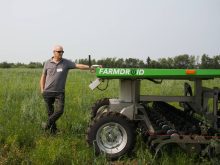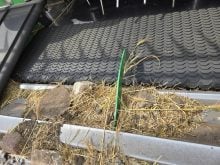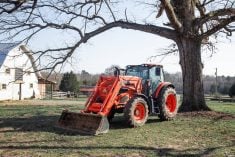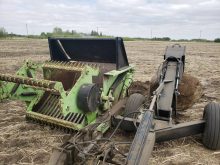ST. JEAN BAPTISTE, Man. – Pipeline crews and construction companies may weigh heaviest on the minds of Manitoba farmers worried about clubroot contamination.
But the real danger to canola crops could be the young man who sits at their table for Thanksgiving dinner.
“That’s probably your biggest risk,” said Manitoba Agriculture’s Ingrid Kristjanson during St. Jean Farm Days in St. Jean Baptiste.
“If you have a son that’s going out (to Alberta for work), make sure he cleans up the truck before he gets back.”
Read Also

Saskatchewan puts crown land auction on hold
Auctions of Saskatchewan crown lease land are once again on hold.
Clubroot is a devastating and lingering disease for canola growers. It’s hard to get rid of once it’s in a field.
The disease has been found in only one Manitoba field and the symptoms were not severe.
However, it has been a major problem in Alberta, cropping up on farms in about a dozen municipalities.
Many farmers fear the disease will spread east.
Clubroot can spread by itself via the wind, but the fastest transmission method occurs when equipment picks up the disease spores and move them elsewhere. Many Saskatchewan and Manitoba residents work in infected parts of Alberta, providing opportunities for equipment and boots to pick up infected soil and take it home.
Kristjanson said commercial operators have been taking clubroot contamination seriously and are trying to ensure they don’t cause the disease to spread, but that may not be true for individuals who rush home for a day or two to be with their families.
“While protocols are being followed by businesses and by the pipeline companies – they’re self-policing – it’s pretty easy for somebody who’s working out west and happy to come home for the weekend to not even think they’re tracking in soil clumps that potentially have spores in them,” Kristjanson said.
People returning to Manitoba from infected areas need to slow their departure long enough to make sure they’re not bringing unwanted diseases with them.
“Clean before you come home, not when you’re back in the yard,” Kristjanson said.















